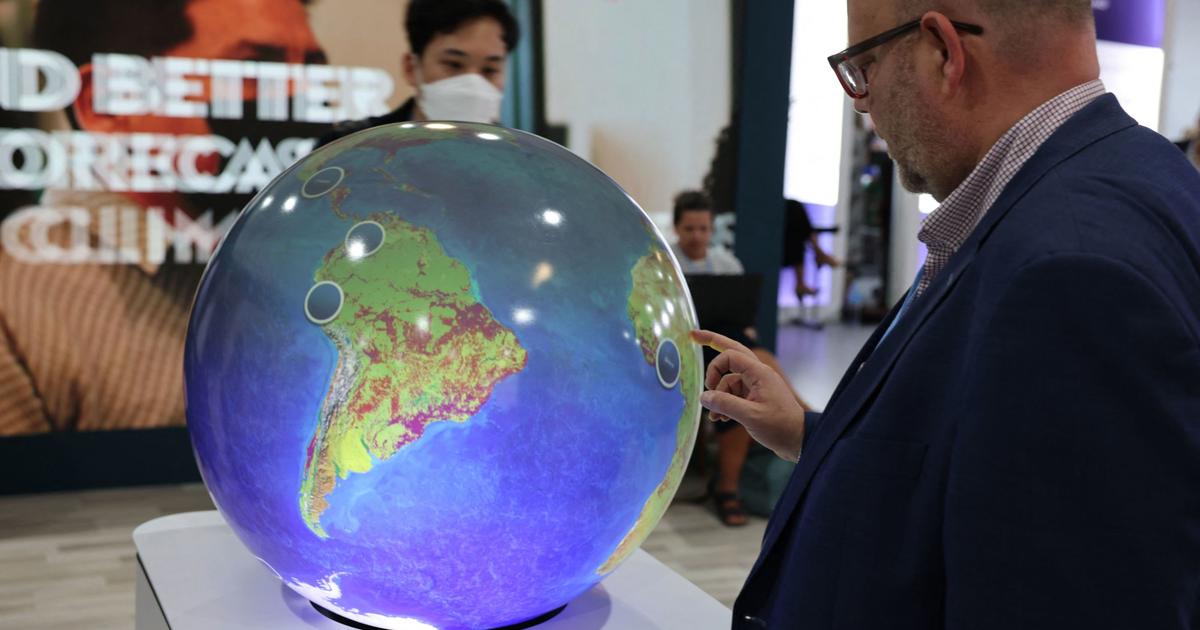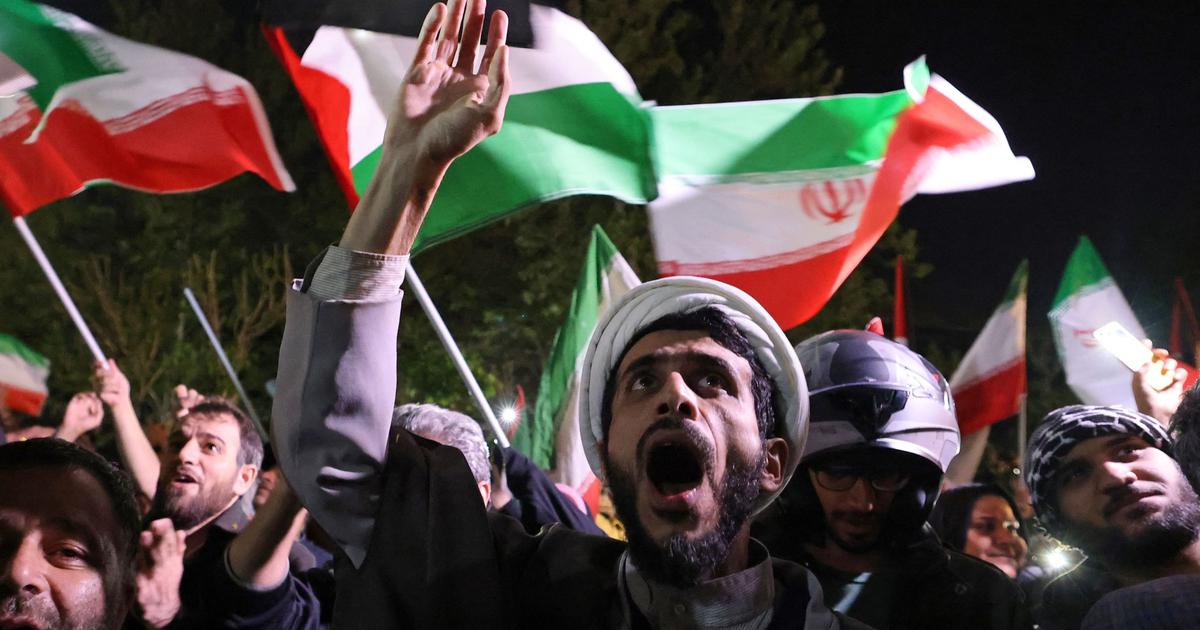Jean-Baptiste Noé is a doctor in economic history and editor-in-chief of the journal Conflits. He has just published:
The decline of a world: geopolitics of clashes and rivalries in 2023.
(2022, ed. de l'Artilleur, 288p., 22€.).
LE FIGARO. - You paint a picture of an ancient world in decline that heralds a new era for the West. What will it look like?
Jean-Baptiste NOÉ. -
It is difficult to predict the future but we can make assumptions.
We are heading, it seems to me, in a world marked by the emergence of several poles and in particular a pole around China.
To be more precise, the world that is taking shape is marked by strong States on the one hand, in regional areas, and on the other by a fragmentation of societies in Europe with the rise in power of international networks, in particular criminal networks organized around the trafficking of drugs and human beings.
Moreover, we are witnessing a disintegration of identity where each people, each population, resumes or rediscovers its culture, thus living within a society without a common culture.
In this new geopolitical configuration, you believe that China can fall. Why ? Is this hypothesis really credible?
This scenario indeed goes against the perception of China today.
But two elements do not plead in favor of China: we have very little reliable statistical data on this country because they are produced by the Chinese government and must therefore correspond to the political objectives set.
We therefore do not know the real state of China on the economic and social level.
Secondly, we have never seen a dictatorship maintain its power over the long term.
To grow, you have to innovate and create.
To do this, it is imperative to have freedom of expression, freedom of enterprise, freedom of information, religious freedom and of course political freedom.
Today, big technologies are invented by the Americans, then taken over by the Chinese.
So far, China has invented little.
It is inspired by existing technologies, sometimes improves them but does not invent them.
The semiconductors are designed in Taiwan, not in Beijing.
Innovation remains on the American and European side.
The religious makes it possible to distinguish oneself in a world which is more and more standardized.
Jean-Baptiste Noé
Xi Jinping is reorganizing China.
He refers culturally to Mao, hence the regular purges carried out within the Chinese Communist Party and his “zero Covid” strategy in Shanghai.
This creates a system of terror that is not conducive to economic development.
If the Chinese manage to sustain themselves economically and innovate without intellectual freedom, that would be a first.
You explain that our world is marked by the return of spiritualities and devote a chapter to the rise of the voodoo cult. How to explain it? Should we see in it a quest for meaning, for landmarks, for individuals in a world perceived as unstable?
The rise of witchcraft and voodoo, particularly in France, is an observation that I have been making for several years.
Moreover, more and more crises have a religious, spiritual dimension.
This is also true in Africa or Latin America.
To explain it, there are several factors.
First, a philosophical factor: the 20th century was the century of having it, with unprecedented material development.
This asset is also that of independence for the African countries that were created during this period since they did not previously exist as a state.
Once you have obtained it, then the question arises of what to do with it.
This is where people ask themselves who they are and define themselves in relation to others or in opposition to them.
This reflection is global, it crosses Asia as well as Africa, Latin America and in a certain way also Europe.
Social networks and interconnections have made this phenomenon all the more possible.
Another consequence of technological globalization is that it has destroyed weak cultures and reinforced strong cultures.
It suggests that there is a lot in common between an inhabitant of Senegal and an inhabitant of France or Argentina.
The religious makes it possible to distinguish oneself in a world which is more and more standardized.
Islamism is only a veneer that comes to cover ethnic issues or confrontation between peoples who want to control a territory.
Jean-Baptiste Noé
In view of the picture you draw of Africa (demographic explosion in Nigeria, structural instability in many countries such as Mali, etc.) and the rise of religion, Islamism seems to have a bright future...
It's not that obvious.
There is a debate on this point.
Some specialists believe that Islamism is a cause before being a consequence;
that instability is caused by jihadism and not the other way around.
For my part, I tend to consider that it is first the ethnic questions, and the opposition of peoples that are a source of instability, before the religious question.
Islamism makes it possible to find a "noble" cause to defend or to join a larger movement.
But the opposition that there may be between such and such a people is at the source of the conflicts.
Moreover, the practice of Islam in sub-Saharan Africa is quite different from that of the Maghreb.
This is why the Islamic State is destroying Muslim places in Mali or Mauritania.
Read also“In terms of cyber defense, the European community does not exist”
Islamism is only a veneer that comes to cover ethnic issues or confrontation between peoples who want to control a territory.
We see it in Nigeria with the appearance of a very worrying phenomenon: the development of criminal networks that we integrate through a voodoo rite, of extreme violence.
Mixes a form of sordid criminality and spirituality which allows to give a horizon a little bigger to the thugs than the simple fact of selling drugs.
A form of transcendence.
States are no longer the only geopolitical players, they now face competition from private companies like the Gafa. How is this a major revolution?
There are indeed very important non-state actors.
If the industrial contribution of Twitter is not very great, this tool is capable of upsetting relations between States.
Companies have become global companies, even if they are still linked to a State, to a jurisdiction, to a currency.
The state has not disappeared, but it is no longer present on the world stage in the same way as two or three decades ago.
France is forgetting Central Asia as well as the Pacific zone, as demonstrated by the lack of interest in the referendums in New Caledonia, an extremely important issue which has hardly been mentioned.
Jean-Baptiste Noé
The notion of border has also changed.
Borders are no longer just political borders.
They are more flexible, less linear but they are still there.
We are rediscovering the importance of having an army and, despite certain predictions, bitcoin has not yet replaced the dollar.
States still have a say, as they control the currency and decide the law.
In this new geopolitical era, France does not seem to be present...
France's problem is the lack of will.
You can't be powerful on the world stage if you don't have a will to power.
Then you need a frame.
I note that our country only looks at Africa, and in Africa only the French-speaking part.
It forgets Central Asia as well as the Pacific zone, as demonstrated by the lack of interest in the referendums in New Caledonia, an extremely important issue which has hardly been mentioned.
A year after the third referendum, the impression remains that the French government has no plans for either New Caledonia or the Pacific space, even though it is an essential area.
Our field of vision is restricted and the more we restrict it, the more we restrict our ambitions.
It's time to drop the blinders and have a global vision,
which goes from the Pacific to Africa and to Latin America.
Remember, however, that the Franco-Brazilian border is the longest French land border in Amapá and Guyana.
It is fundamental to have a geopolitical project in common with Brazil, our neighbor and yet, I note a total absence of reflection on this subject.
This is explained by an erroneous vision of the Overseas Territories, seen only from the angle of social problems.
We are interested in the DOM-TOMs when there are strikes or unemployment, never to consider their place in the geopolitical space and with a view to building an international project for them.
Let's get out of this intellectual routine and have a real project for these territories.
The decline of a world: geopolitics of clashes and rivalries in 2023, ed.
of the Gunner, 2022, 288p., 22€.
Editions of the Gunner









